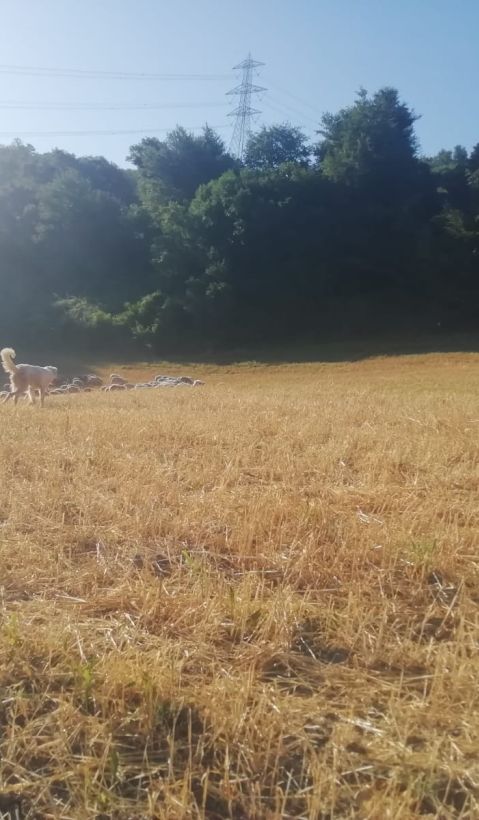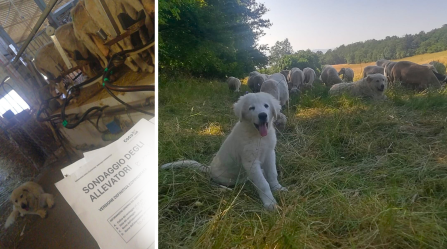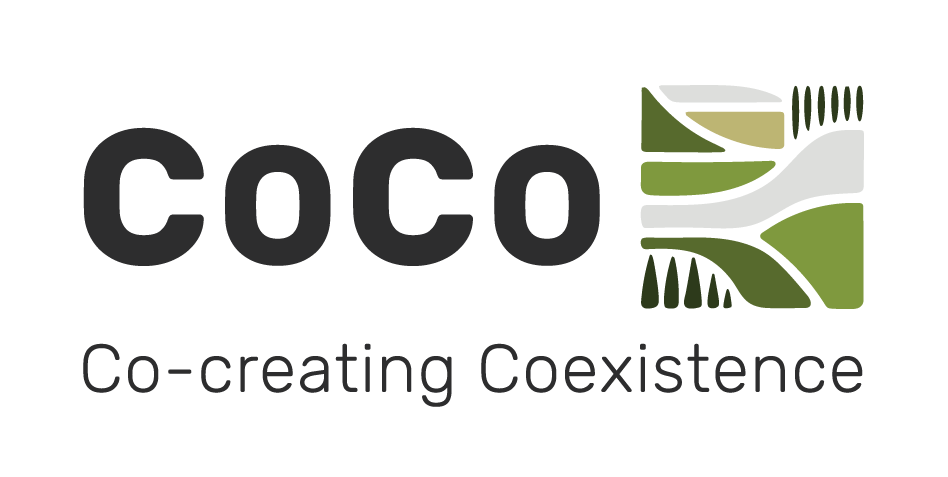
Preventing Damage, Building Understanding: Fieldwork on Coexistence in Italy’s Maremma region and Cuneo province
| Date |
Date
|
As the challenge of coexistence between livestock and large carnivores intensifies across Europe, the CoCo project is taking decisive action this July. Researchers from the Istituto di Ecologia Applicata (IEA) and University of Turin (UNITO) are on the ground in Tuscany and Piemonte conducting vital fieldwork to assess and improve damage prevention strategies in real time. Fieldwork will continue in Abruzzo during August.
This month’s activities mark a significant step forward for the project, as teams engage directly with local farmers and shepherds in the Maremma region and in Cuneo province, landscapes at the frontline of human-wildlife interaction. By gathering first-hand accounts and discussing with farmers the insights of the practical measures in place, the CoCo team is working to identify barriers and opportunities for effective coexistence, taking into account all major livestock species –sheep, goats and cattle– while ensuring that future recommendations are both evidence-based, species-specific and locally relevant.

Listening to the Frontlines
Over 40 in-depth interviews have already been conducted with local participants, shedding light on perceptions and realities surrounding life and interactions with wildlife, preventive measures such as livestock-guardian dogs (LGDs) and electric fencing, trust in other stakeholders, and decision-making processes. Early impressions highlight diverse key themes, such as the perception of wolves as an additional barrier to farming in an already challenging socio-economic context, a preference for participatory decision-making processes, and a prevailing sense of support for wolf management measures. Notably, electric fences are seen by many as unsuitable for the Maremma landscape, despite limited first-hand experience with their use.
“It’s important to note that these are initial impressions from our conversations in the field,” says Filippo Marino, researcher at IEA. “A full analysis of the data will follow, but what is clear is the need for open dialogue and tailored approaches that reflect the unique challenges and opportunities of each region.”
Bridging Research and Practice
The CoCo project’s fieldwork is about more than data collection, it is about building trust, understanding local perspectives, and co-creating solutions that work for both people and wildlife. By engaging directly with those most affected by human-wildlife interactions, the project aims to ensure that future recommendations for damage prevention are grounded in lived experience as well as scientific evidence.
The fieldwork in the Maremma region and in Cuneo province is part of a broader effort across Europe to test, refine, and share effective strategies for coexistence. The insights gathered this summer will inform not only local actions but also the wider conversation on sustainable rural development and wildlife conservation.
